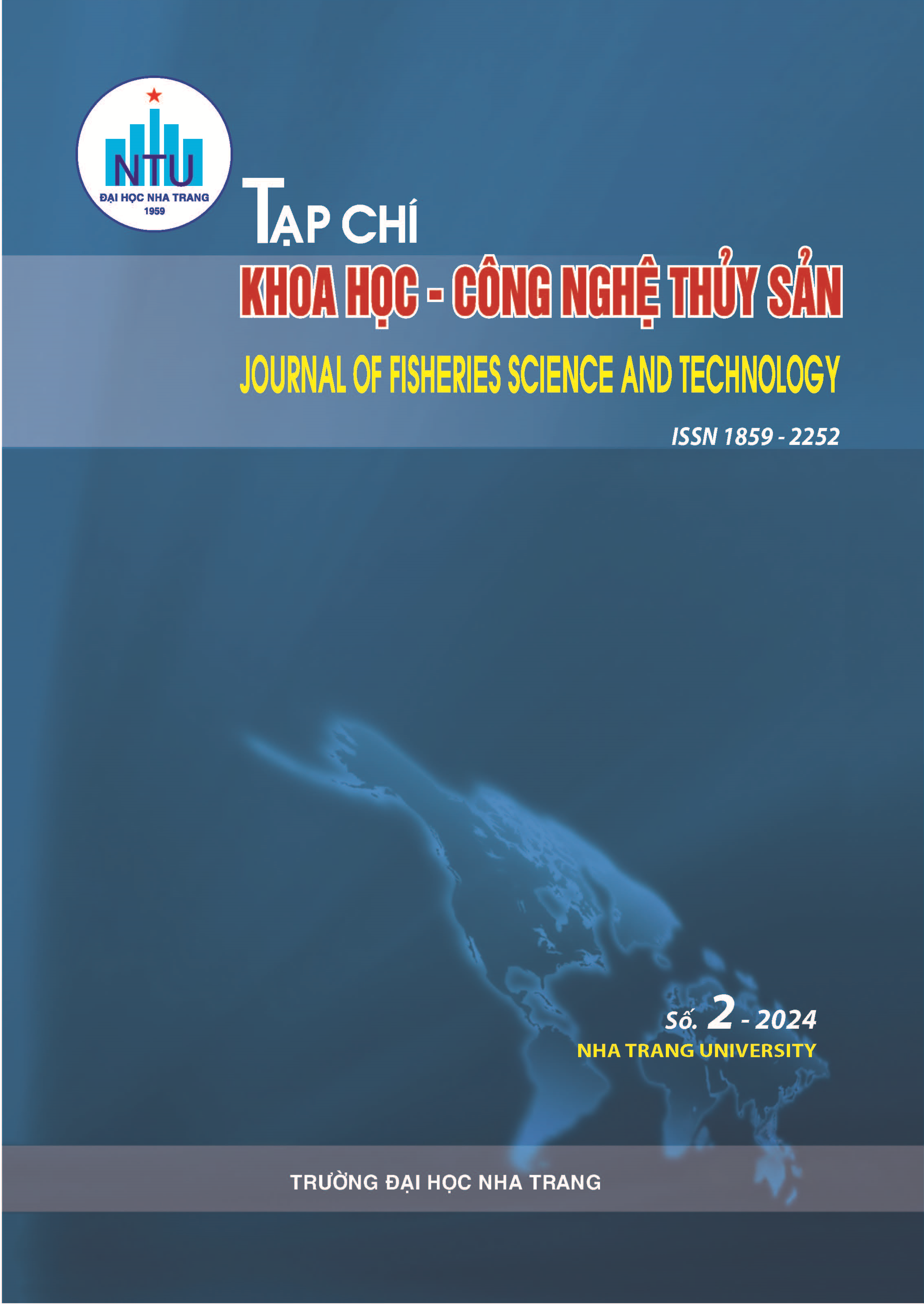##plugins.themes.huaf_theme.article.main##
Abstract
This study evaluates the effects of feeding frequency on growth performance, survival rate, and feed utilization efficiency of blackspotted croaker (Protonibea diacanthus) fingerlings, aiming to optimize the nursing process and enhance production efficiency. The experiment was conducted in a completely randomized design with four treatments corresponding to four feeding frequencies (2, 3, 4, and 5 times/day), each treatment being triplicated. Fingerlings with initial weight and length of 0.67 ± 0.07 g and 3.34 ± 0.03 cm, respectively, were stocked in 100 L composite tanks at a density of 1 fish/L for 28 days. The monitored parameters included specific growth rate in length and weight (SGRL and SGRW), biomass (BM), survival rate (SR), and feed conversion ratio (FCR). The results showed that feeding frequency significantly influenced all the investigated parameters (P < 0.05). Fish fed 4 - 5 times/day exhibited superior growth, survival, and feed utilization compared to those fed 2 times/day. Specifically, compared to the treatment of 2 feedings/day, fish in the treatments of 4 - 5 feedings/day had 12.4 - 26.1% higher SGRL and SGRW, 71.8 - 94.7% higher BM, 20.8 - 22.6% higher SR, and 23.5 - 29.4% lower FCR. In most of the evaluated parameters, no statistically significant differences were found in the parameters between the treatments of 4 and 5 feedings/day. Based on the obtained results, the study suggests applying a feeding frequency of 4 times/day in nursing blackspotted croaker fingerlings, thereby optimizing growth performance, survival rate, and feed utilization efficiency while saving labor costs compared to feeding 5 times/day. The research findings provide a crucial foundation for refining the seed production and nursery rearing protocols of blackspotted croaker, contributing to the efficient and sustainable development of aquaculture for this high-value species.
Keywords: Blackspotted croaker, feeding frequency, growth, survival, feed utilization efficiency.

